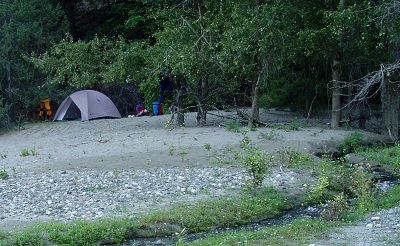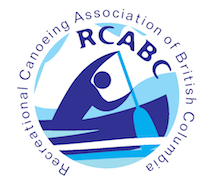
Leave No Trace principles are taught and encouraged by many RCABC instructors. On waterways where LNT principles are practiced, canoeists can feel the pleasure of being the first to discover an untouched wilderness even if thousands of people have passed before them. Most canoeists know what it feels like to explore a waterway and find garbage, campfire debris, damaged trees, improper human waste management and other remnants of bad camping practices. Let’s do our best to keep our BC wilderness clean and wild!
Leave No Trace is becoming a standard practice with outdoor programs, in parks and along waterways. The seven LNT principles are listed below. BC Parks has a web page called Marine & Water Ethics with additional information that is tailored specifically to BC.
The seven LNT principles are:
- PLAN AHEAD & PREPARE
- TRAVEL AND CAMP ON DURABLE SURFACES
- DISPOSE OF WASTE PROPERLY
- LEAVE WHAT YOU FIND
- MINIMIZE CAMPFIRE IMPACTS
- RESPECT WILDLIFE
- CONSIDER OTHERS
Further information on LNT can be found at www.leavenotrace.ca
- Know the regulations and special concerns for the area you'll visit.
- Prepare for extreme weather, hazards, and emergencies.
- Schedule your trip to avoid times of high use.
- Visit in small groups. Split larger parties into groups of 4-6.
- Repackage food to minimize waste.
- Use a map and compass to eliminate the use of marking paint, rock cairns or flagging.
2. TRAVEL AND CAMP ON DURABLE SURFACES
- Durable surfaces include established trails and campsites, rock, gravel, dry grasses or snow.
- Protect riparian areas by camping at least 70 meters from lakes and streams.
- Good campsites are found, not made. Altering a site is not necessary.
- In popular areas:
- Concentrate use on existing trails and campsites.
- Walk single file in the middle of the trail, even when wet or muddy.
- Keep campsites small. Focus activity in areas where vegetation is absent.
- In pristine areas:
- Disperse use to prevent the creation of campsites and trails.
- Avoid places where impacts are just beginning.
- Pack it in: pack it out. Inspect your campsite and rest areas for trash or spilled foods. Pack out all trash, leftover food, and litter.
- Deposit solid human waste in cat-holes dug 15 to 20 centimeters deep at least 70 meters from water, camp, and trails. Cover and disguise the cat-hole when finished. [If a group’s stay is longer than 20 people days (4 people for 5 days), dig a common latrine at least 60cm deep.]
- Pack out toilet paper and hygiene products.
- To wash yourself or your dishes, carry water 70 meters away from streams or lakes and use small amounts of biodegradable soap. Scatter strained dishwater. [Biodegradable soap only biodegrades in organic soil with bacteria present.]
- Preserve the past: examine, but do not touch, cultural or historic structures and artifacts.
- Leave rocks, plants and other natural objects as you find them.
- Avoid introducing or transporting non-native species.
- Do not build structures, furniture, or dig trenches.
- Campfires can cause lasting impacts to the backcountry. Use a lightweight stove for cooking and enjoy a candle lantern for light.
- Where fires are permitted, use established fire rings, fire pans, or mound fires.
- Keep fires small. Only use sticks from the ground that can be broken by hand.
- Burn all wood and coals to ash, put out campfires completely, then scatter cool ashes.
- Observe wildlife from a distance. Do not follow or approach them.
- Never feed animals. Feeding wildlife damages their health, alters natural behaviors, and exposes them to predators and other dangers.
- Protect wildlife and your food by storing rations and trash securely.
- Control pets at all times, or leave them at home.
- Avoid wildlife during sensitive times: mating, nesting, raising young, or winter.
- Respect other visitors and protect the quality of her experience.
- Be courteous. Yield to other users on the trail.
- Step to the downhill side of the trail when encountering pack stock.
- Take breaks and camp away from trails and other visitors.
- Let nature’s sounds prevail. Avoid loud voices and noises.



















